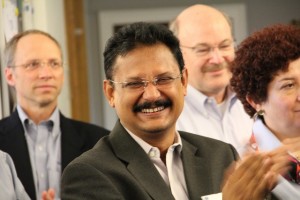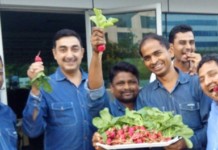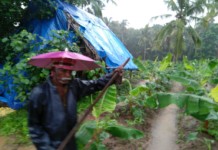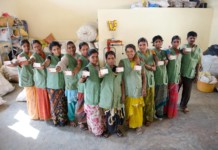The data on the number of Indians undernourished is scary. Almost one in two children under the age of five in India is undernourished. Among adults, 36% of women and 34% of men
are undernourished.
One of the gaps in addressing under nutrition is that organizations and practitioners in various sectors are unaware of how their work is linked with nutrition. Ashoka, a network of leading social entrepreneurs from various sectors around the world and in India, is uniquely positioned to foster collaborations to address this challenge. SN features four such entrepreneurs and their work. Profiles sourced from www.ashoka.org.
Kaushlendra Kumar – The Iim Sabziwala
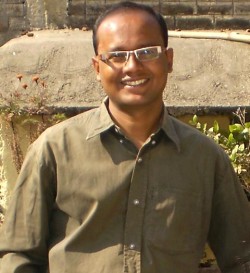
Kaushlendra Kumar, an alumnus of the Indian Institute of Management-Ahmedabad (IIM-A), is re-imaging the distribution of food in the Bihar region in northeastern India. Starting with 1,000 vegetable farmers in Bihar and 800 vegetable distributors, Kumar founded the Kaushalya Foundation, a complete vegetable supply chain that directly supplies larger food distributors in cities all over India with nutrient-dense foods. He is demonstrating the potential to enhance people’s vitality through the provision of more nutrient replete foods, specifically fruits and vegetables. The process reduces wastage due to spoilage by 30-40 percent and passes the savings on to the farmers and vendors themselves.
In Bihar, vegetable and subsistence crop growers are currently at the bottom end of a long supply chain overflowing with intermediaries and mired in inefficiency. In fact, the entire vegetable value chain has no less than six intermediaries between the original farmer and the final consumer. Finally, by the time produce is purchased by vegetable vendors, the prices are so high that there is little room for a final mark up. In this arrangement, the farmers on the one end remain poor and the vegetable vendors on the other end fare no better.
The management staff, Kaushlendra and four young professionals from Bihar, cover their expenses by taking a 3-7% transaction cost on produce before selling to the vendor. Simply put, Kaushlendra and these two 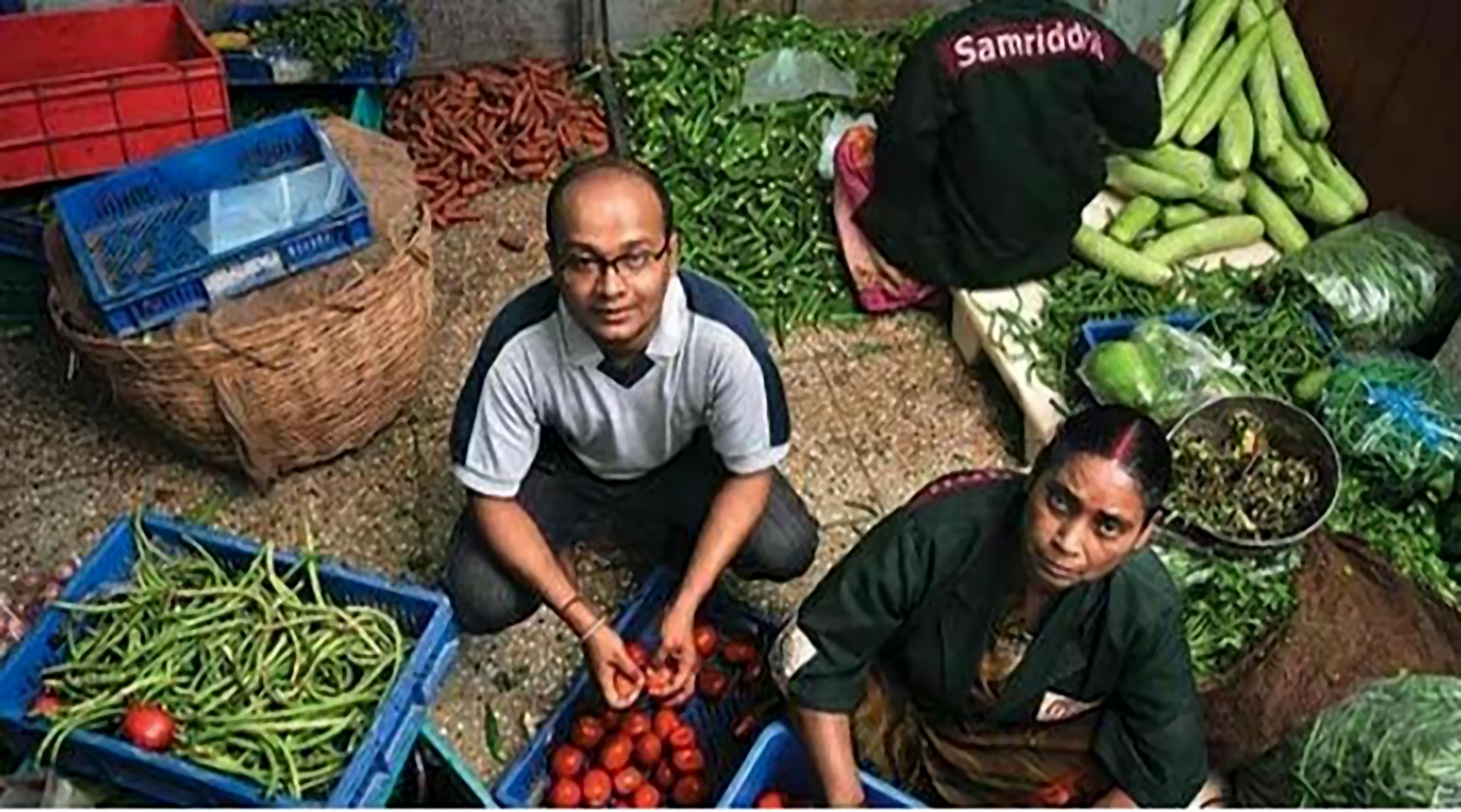 companies coordinate the movement of produce from rural farmers to urban vendors and consumers first by aggregating produce in villages, cleaning and sorting it at distribution facilities, and finally delivering it all to organized vendors. In each village, 5-6 groups of a dozen or so farmers make up collection and knowledge sharing groups called Kisangaclubs.
companies coordinate the movement of produce from rural farmers to urban vendors and consumers first by aggregating produce in villages, cleaning and sorting it at distribution facilities, and finally delivering it all to organized vendors. In each village, 5-6 groups of a dozen or so farmers make up collection and knowledge sharing groups called Kisangaclubs.
In order to make vegetable vending more professional and profitable, Samriddhii assures the vendors that they will buy leftover vegetables back if vendors agree not to drop prices at the end of the day. They also ask vendors to use time-stamped receipts so that all Samriddhii branded vegetable carts can offer a freshness guarantee. A significant new development is use of refrigerated vegetable cold cart ensuring that produce stays cool and fresh for up to ten hours. As Samriddhii grows, farmers and vendors in the region will continue to prosper and Kaushlendra’s vision of transforming the river-rich parts of Bihar and then Jharkhand and Uttar Pradesh into India’s vegetable supply hub will become a reality. He has transformed the lives of hundreds of farmers and vendors and, though he still introduces himself simply as Kaushlendra, throughout the region he is now fondly called Kaushlendra Sabzi Wallah, Kaushlendra the Vegetable Wallah.
Kaushlendra set up two complimentary organizations under the banner of the Project Samriddhii: a production company and a marketing company, one working with marginal farmers and one focused on vegetable vendors. Both companies are owned by members, employ professionals groomed from the region, and presently handle 8-10 metric tons of vegetables per day.
Indu Capoor – Education For Change
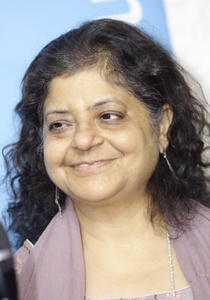
Indu Capoor has spent the last three decades promoting health, rights and empowerment of women, girls, children, and youth. She has been strongly advocating for comprehensive health care, with a special focus on gender equality.
Working with field based and government organizations, CHETNA aims to improve access to food and enhance nutrition. More recently, Indu has expanded her focus to include healthcare in her nutrition programs (and advocating for health programs to include nutrition).
Initiated its work in 1980 CHETNA was established in 1984, CHETNA addresses issues of women’s health and development in different stages of their lives from a “Rights” perspective. CHETNA is an activity of the Nehru Foundation for Development, which is a public charitable trust, registered under the Bombay Public Trust Act 1950. CHETNA supports Government and Non-Government Organisations (GO and NGOs) through building the management capacities of educationists/health practitioners/supervisors/ managers enabling them to implement their programmes related to children, young people and women from a holistic and gender perspective and advocate for people centred policies.
Its core activities are capacity building, forging partnership at local, regional and national level. CHETNA also does advocacy, development and dissemination of materials. CHETNA works primarily in Gujarat and Rajasthan States.
Primarily the organization provides support – medical care and advice, advocacy for women and children, and education, for men and women about the importance of understanding the unique health needs of women.
As well as direct intervention and programs, CHETNA conducts regular studies on the health of women, especially rural women, so as to have data to create both policy and social change. They have also published many interactive forms of nutrition education such as booklets, flip cards, audio/visual material and pamphlets.
CHETNA believes that traditional health practices are important for empowering communities, especially those, which are most underprivileged and marginalised. Indu believes that gender concerns need to be 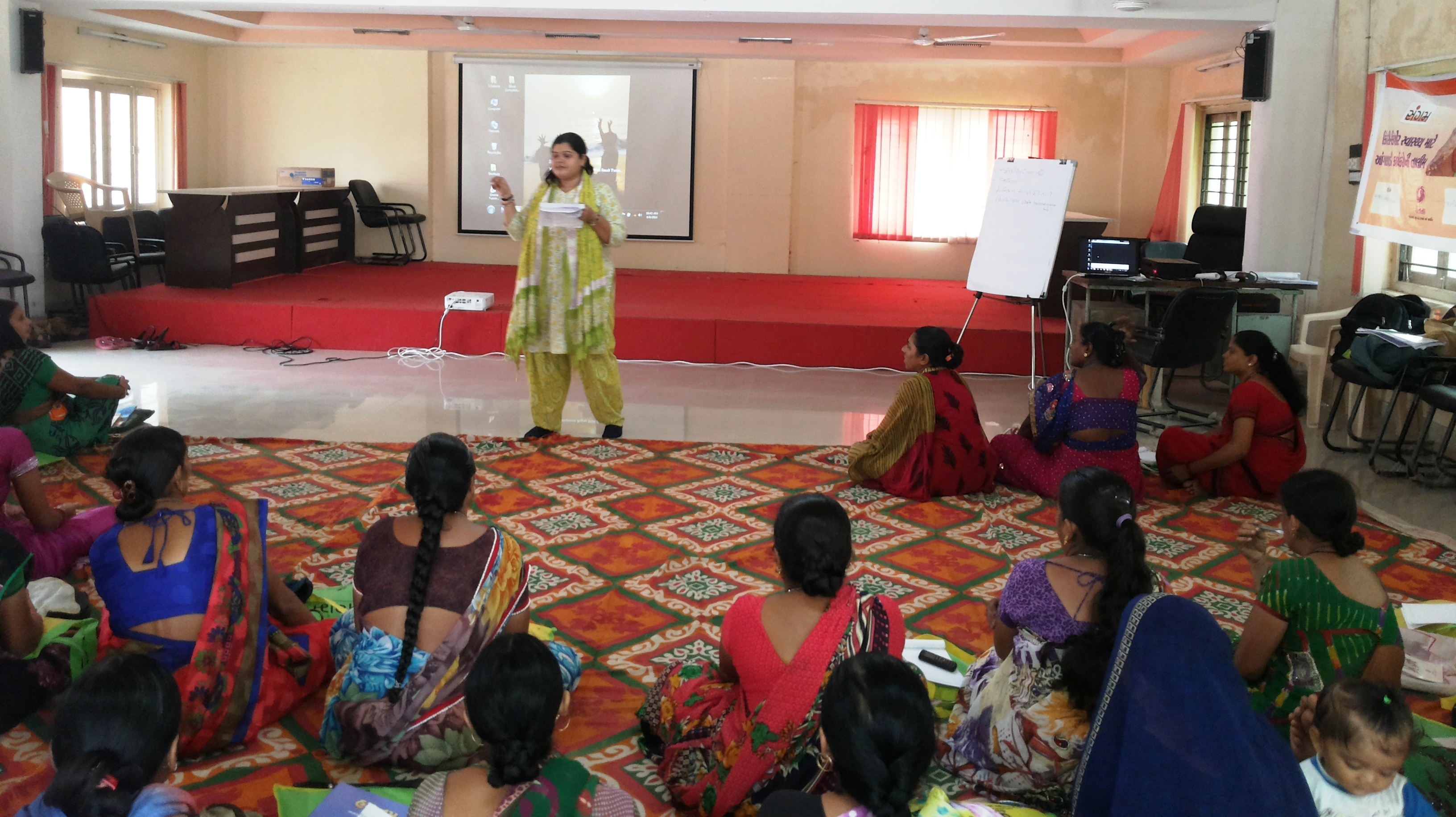 urgently addressed to overcome gender inequality, which is at the root of most of the inequitable health concerns in our society. A champion for the cause of children’s, young persons’ and women’s health and education concerns, through her extensive advocacy efforts, she has inspired, developed and led a competent team to achieve the vision/mission of CHETNA.
urgently addressed to overcome gender inequality, which is at the root of most of the inequitable health concerns in our society. A champion for the cause of children’s, young persons’ and women’s health and education concerns, through her extensive advocacy efforts, she has inspired, developed and led a competent team to achieve the vision/mission of CHETNA.
Due to her dynamic leadership, CHETNA has received recognition and several awards at the state, national and international levels, particularly the South Asian region. Over the last three decades, Indu Capoor has conducted and contributed as a resource in about 2000 workshops, trainings and seminars for government and non-government health, education and development functionaries. She has presented papers at several state, national and international forums, which have been widely published.
Indu Capoor has conducted evaluations of development programmes from prestigious National and International organizations. She is an active board/advisory member of several state, national and international organizations, which advocate for recognizing the need for focus on health and gender issues, based on field realities of disadvantaged and marginalized sections of society, in policies and programmes. With Indu’s efforts, women are now taking control of their own health, delaying marriage, and when possible delaying first birth.
Furthermore, CHETNA has been garnering the trust of local women because they are able to share information on nutrition and their bodies that not even the local doctors know. Additionally, the research conducted by CHETNA has become the basis of their advocacy. April 11th has now been declared Safe Motherhood Day. Hopefully this will help to bring awareness to the fact that so many mothers, especially in rural areas die to childbirth unnecessarily.
With a focus on saving the girl child, Indu started the Centre for Health Education Training and Nutrition Awareness (CHETNA) as a full support and change-making organization.
Biplab Paul – ‘Bhungroo’ For Sustainability
In rural areas of arid Gujarat, India, where high saline soils create an impermeable layer that prevents rainwater from percolating into the soils, Biplab Paul invented a new rainwater harvesting technology and business model.
During the rainy season it enables local communities to store fresh water in saline underground aquifers, and then extract it to grow an additional crop during the dry season, which was never before possible. The model improves nutrition and food security, economy, and local biodiversity.
Through his organization, Naireeta Services Private Limited, he has helped transform the very important role of the poorest women in these communities as they are the core water harvesters available and motivated to do the work during this dry season when many other community members are working elsewhere.
Biplab has introduced a five-stage process for solving the irrigation problem with the re-introduction of Bhungroo (meaning straw in Gujarati). This concept does not warrant farmers to pay anything upfront, instead, they agree to a five-year contract to repay the services of water logging-freeing and irrigation water through their cash crop.
Naireeta Services Private Limited and SHGs take loans from financial institutions to install the infrastructure as well as the cost for supplying irrigation water to farmers for next five years. Irrigation cost for food crop (monsoon crop) is waived, so poor and marginal farmers are able to access food security.
Biplab also works closely with universities and governments for a faster transfer of the technology to a wider audience.
Older irrigation systems divert water from rivers to be used in the cities which leads to a decrease in farming and an increase in migration to the cities. The scarcity of water causes both domestic and social violence. Women are most adversely affected by the water crisis, and as a result, they rarely break free from the patriarchal system.
In 2007, Biplab conceptualized the social enterprise Naireeta Services Private Limited, a community-based organization, managed by women. Biplab has borrowed the concept of peer accountability as social collateral from the Grameen Bank. 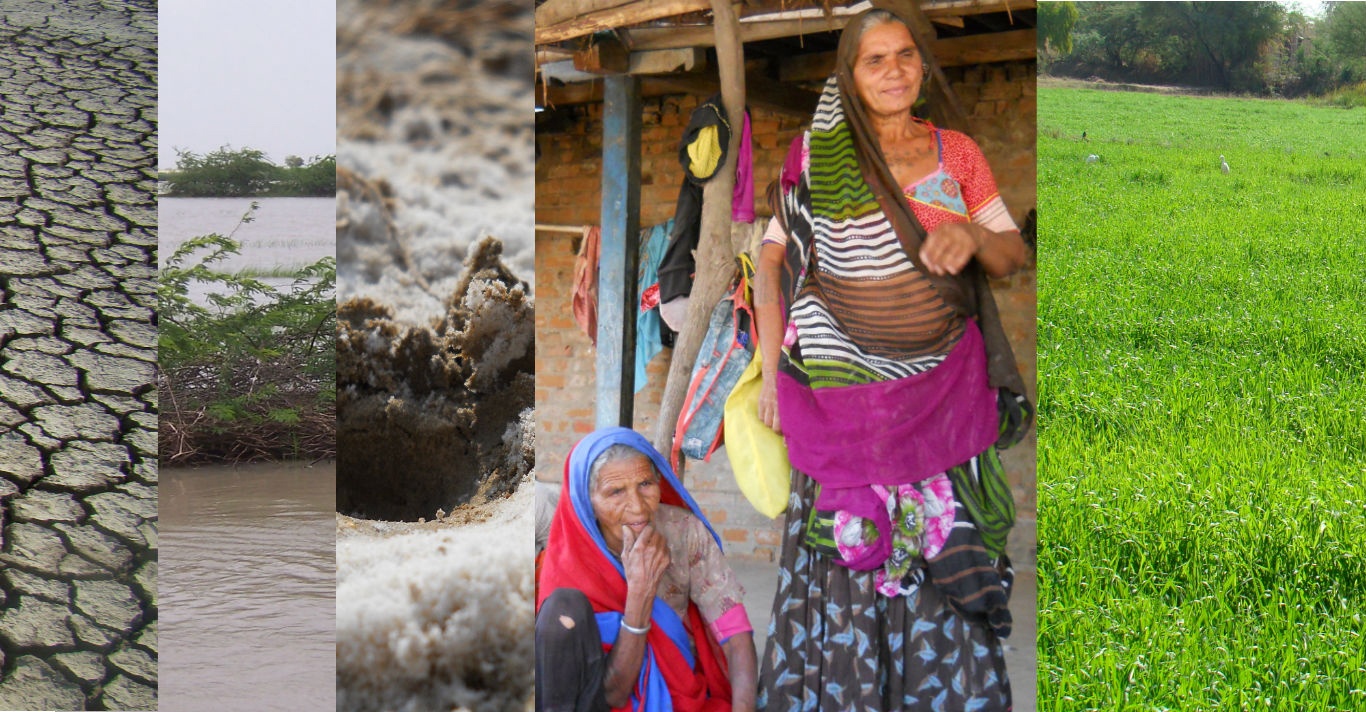 The five women who form a Bhungroo group cannot default on any of the deliverables. Traditionally land ownership rights rest with a male member of the family, but with this new process a power-of-attorney is obtained in the name of the woman member from the male member (i.e. the husband or brother) to make the land a part of the Bhungroo initiative..
The five women who form a Bhungroo group cannot default on any of the deliverables. Traditionally land ownership rights rest with a male member of the family, but with this new process a power-of-attorney is obtained in the name of the woman member from the male member (i.e. the husband or brother) to make the land a part of the Bhungroo initiative..
Biplab also talks to opinion leaders and policymakers and creates connections for expansion. Gujarat Ecology Commission has replicated this model in other parts of the state while the state education board has incorporated the idea into students’ school curriculum. Biplab has collaborated with
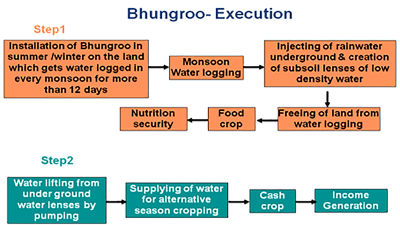 an international CO for a national level replication of the idea through 178 partner organizations. He has also collaborated with a couple of COs those are replicating the concept in the saline coastal regions of West Bengal and Orissa.
an international CO for a national level replication of the idea through 178 partner organizations. He has also collaborated with a couple of COs those are replicating the concept in the saline coastal regions of West Bengal and Orissa.
Change Agent, a Boston-based organization has helped Biplab spread his idea to parts of Africa, venture capital companies such as Angel India Investment Network and Wisecraft while Boston-based in conversations with him about financially assisting the replication of his work in areas where banks are not coming forward. In 1999 Biplab participated in the Global Water Summit in Foz de Iguassu in Brazil where he shared the idea of Bhungroo.
At a basic level, Biplab’s idea addresses the threefold problem of the absence of year-round irrigation, lack of women’s empowerment, and low crop productivity. He has developed a network of citizen organizations (COs) to spread his work in different regions of India.
Sunanda Mane – Training The Bottom Of The Pyramid
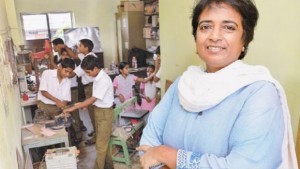
Sunanda Mane is a leader in the key area of training. She is introducing local entrepreneurs into local education systems in order to combat the large gap between knowledge acquired in the classroom and real-life skills required to thrive in rural communities. With the help of Lend-A-Hand India (LAHI), Sunanda brings local farmers into rural classrooms to teach students to the vital skills needed to succeed in the agricultural sector. Her work has resulted in a sharp decrease in the dropout rate of students over the past four years in rural Maharashtra and has successfully linked together agriculture and education. She is now helping lead Ashoka’s Nourishing Schools initiative in India.
Sunanda’s vision is to foster rural development by empowering rural youth to develop life skills and create local opportunities. To achieve this, she leverages local resources to contextualize education imparted to the rural environment and spur entrepreneurship in high schools. She enables them to explore potential careers and livelihood options that address their interests and aptitudes. While working to develop entrepreneurial skills and qualities in students, Sunanda seeks to ensure that young people remain locally connected. Toward this end, she trains local micro-entrepreneurs to act as role models and become instructors in schools to train students. This helps students remain engaged in a variety of local opportunities, such as basic engineering, agriculture, animal husbandry, health, and energy. In return, apart from monetary incentives, these micro-entrepreneurs are trained to use the latest technology while availing opportunities to undertake additional work orders from the community and access networks to help expand their businesses.
Sunanda has convinced over sixty government-aided schools in rural India to adopt her program by aligning her strategy with their interests and has obtained formal recognition from the Government of Maharashtra. As a result, the program appears as part of the transcript of a high school certificate; a full-credit course that has been recommended by the state government to be implemented across the state. The significant disconnect between the education imparted and livelihood skills needed in rural India is a major contributor toward the migration to urban areas. Having grown up in a village in Maharashtra, and after working at an educational institution, Sunanda realized the limitations of existing approaches to education in rural India. Her experiences convinced her that she had to focus on enabling formative students to gain multi-occupational and applicable life skills rather than vocational skills. Sunanda saw existing schools as ideal spaces to implement this idea.
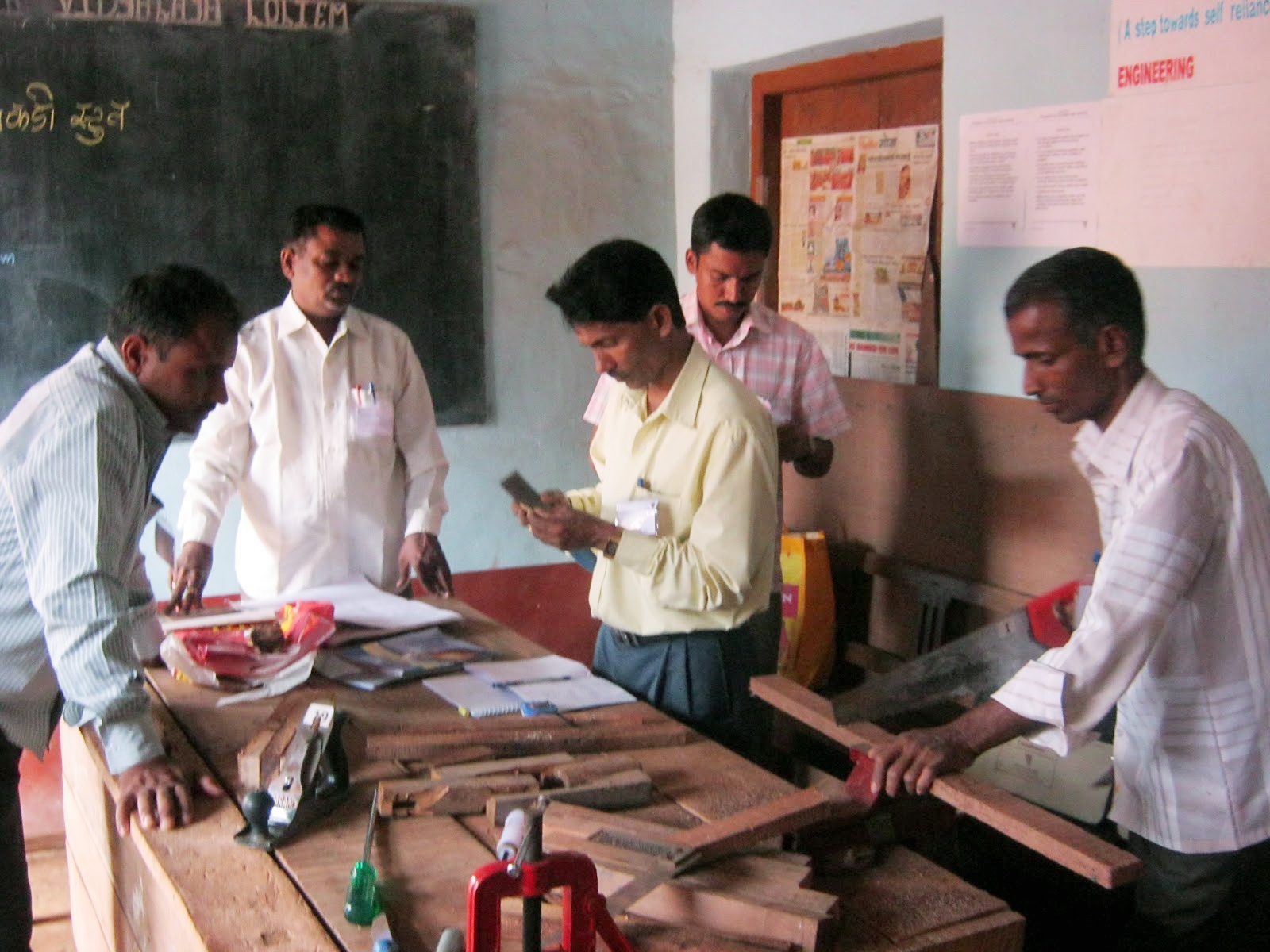
Approximately 30 percent of the secondary schools in India are government-aided schools and many are located in rural India. To elicit their cooperation, Sunanda designed the program to integrate with, and complement, their existing curricula. Through her organization, Lend-A-Hand India (LAHI), she works with the school to alter the timetable for the week and dedicate a full day, each week, to the program. Sunanda receives the commitment of the school management, both in terms of time and finance, by shifting the primary responsibility for the launch and implementation of the program to the school. Instead of recruiting instructors from outside the village, LAHI works with school management to identify and train instructors from within the community; typically local micro-entrepreneurs in the selected fields. Through the program, students’ achieve experiential learning through apprenticeships and by serving the needs of their community. Over the course of three years, students get the opportunity to work and reinforce their understanding of over twenty-five activities. LAHI maintains a gender-neutral approach in imparting education. Due to these initiatives and active participation of the local community, schools have transformed into enterprises—spaces where work orders are carried out, flowers and produce are sold, and the revenue generated through these activities goes back to the school.
Sunanda reaches approximately 8,000 students in Maharashtra. She recently expanded her work to six schools in the states of Karnataka and Goa. Sunanda intends to spread her work across India through strategic partnerships with other organizations and the government. She has also begun a campaign to convince the Central Government to support and adopt her program under a scheme launched to improve secondary education in India.



